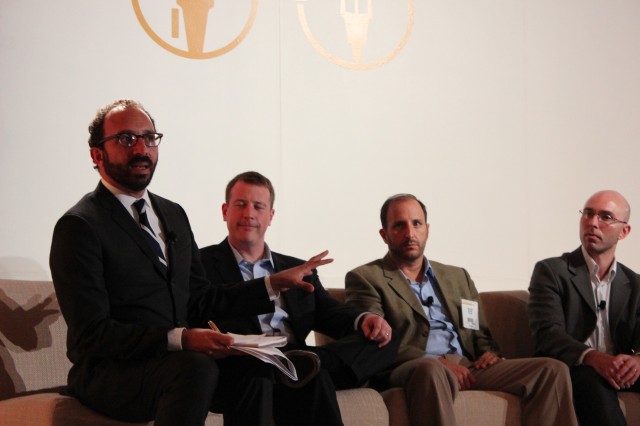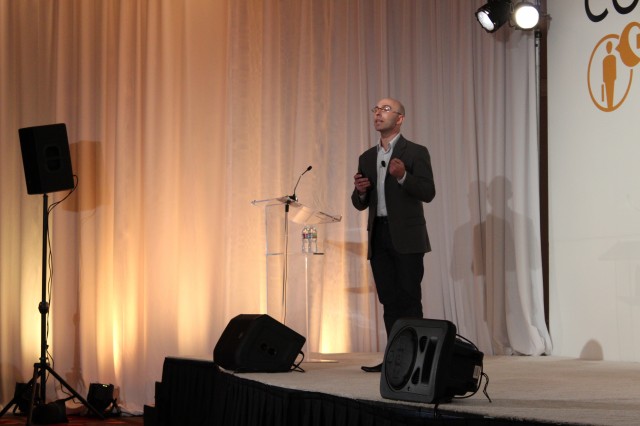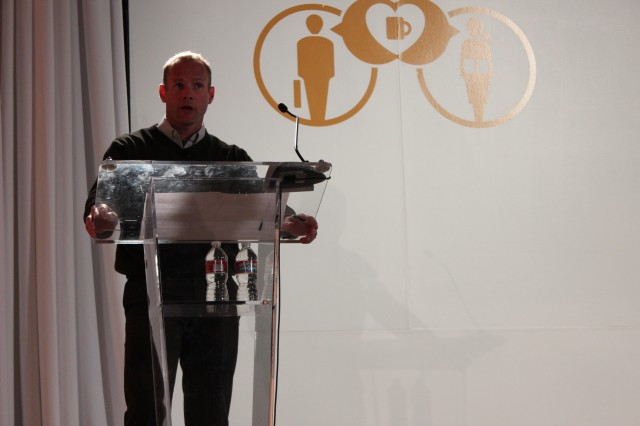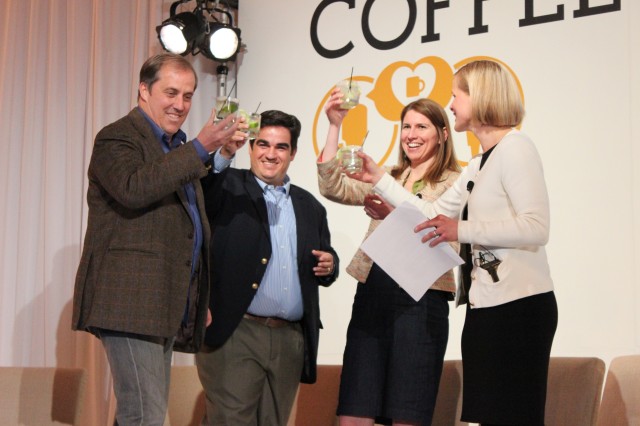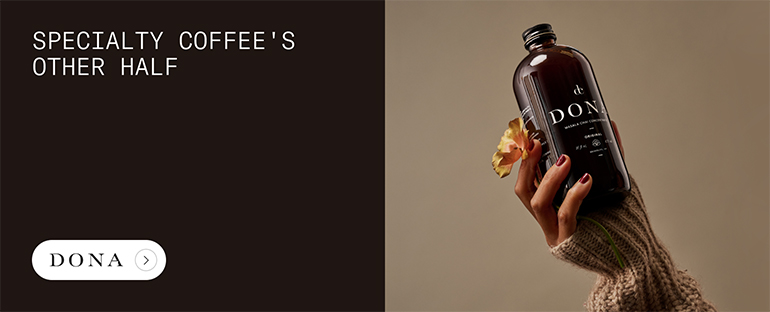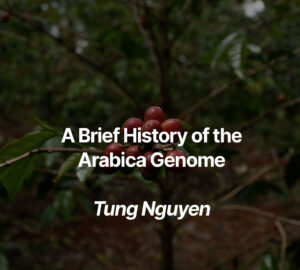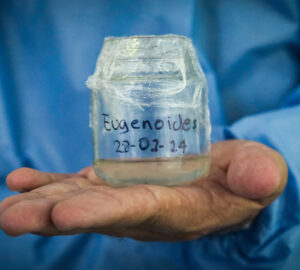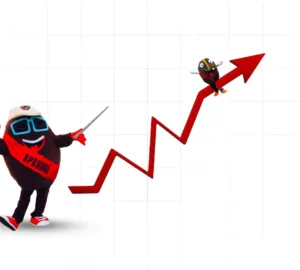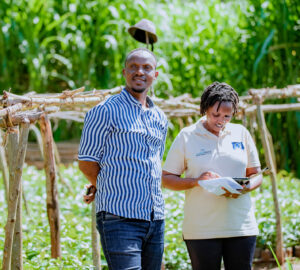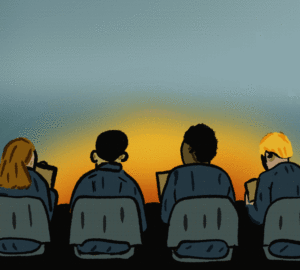Erin Meister continues day one coverage of the 2012 SCAA Symposium in Portland, Oregon.
Let’s review: Collaboration, volatility, and innovation are on everybody’s minds here in Portland, OR, and SCAA Symposium 2012 seeks to address those concerns with real and sustainable solutions that can be implemented across the supply chain.
…except we haven’t really come up with them yet.
“We don’t need magical silver bullets,” said Counter Culture co-owner and former SCAA president Peter Giuliano, whom most people in the room wouldn’t figure for much of a shootin’ man. (Double guns, though? Maybe.) “Magical solutions are only needed to kill big, scary problems. What we have are ordinary problems, and what we need are ordinary solutions.”
Ordinary solutions, thankfully, can come from ordinary people doing ordinary things: Like trying to make coffee farms more efficient, which is what presenter Chris Jordan of Dormans advocated by pointing to the fact that “Costa Rica produces twice the coffee on half the amount of land as Kenya,” to the tune of over 163 million trees on 68,000 hectares, as opposed to the African origin’s nearly 152 million trees on 135,500 hectares. Taking climate, processing, soil health, and variety into consideration (among the myriad other things that go into a successful harvest), is there a feasible way to make Kenya as productive and efficient as a place like Costa Rica? Is that a magic bullet or a regular one?
To NUCOFFEE marketing manager Daniel Friedlander, the not-so-magic bullet we need is more commitment to the balance between transparency (what producers want) and traceability (what roasters and consumers want) between the growing sector and the wholesale/retail sector. Players in the industry need to “think outside of the box and see that when we balance traceability and transparency, there are limitless possibilities for value creation… The most important step(ed: is that a glint of silver?)is to create the initiative to [create that balance]” through a model based on collaboration and integration instead of competition. “Collaboration and transparency will strengthen the coffee chain,” he insisted. (What was that that just whizzed by? Are we shooting at werewolves? This is like an awesome, caffeinated action movie all of a sudden!)
Ordinary people creating extraordinary (and financially sound) relationships are the weapon of choice for Craig Holt of Atlas Coffee Importers: “Good intentions aren’t going to cut it,” he said. “You need to pay more than the other buyers are going to pay for that coffee… It has to be in the growers’ best financial interest to sell to you.”
But the healthiest relationships have a true and deep personal element beyond but including the “big foam check”: There’s a need for “substantial investment of time and energy.”
“I’ve always treated business relationships as extensions of our communities,” Holt continued. “By doing business, we’re becoming part of each other’s future. [And] I’m not talking about ‘Kumbaya’ and drum circles…” (Not that we don’t all love a good drum circle. At Camp Pull-A-Shot, perhaps?)
Continuing what felt like a Scout’s pledge to “Kumbaya” our way into significant systemic improvements, Liam Brody of Root Capital suggested that in order to build resiliency in the value chain, specialty coffee players “need to come together like peanut butter and jelly” and become “pathologically collaborative” (hashtag that!) to combat serious threats to producer-buyer relationships, such as fuel and oil prices, erratic weather, currency fluctuation, market speculation, food prices… And he sees investment at origin as the means to that end, and the way to bring about real and lasting change by allowing growers to make financial and technological inroads toward higher quality and more predictable, sustainable yields.
Do less bad; do more good – that’s the final word on the day’s presentations, a directive by Imaginals innovations strategist Maggie De Pree. “Enroll changemakers both big and small,” she said, “and include your customers in the decision to drive change related to those issues.”
Sounds great, and we’ll get right on it, right after we finish this basket-weaving project. We’re trying to get our Silver Bullet badge before we leave Portland…
Erin Meister is our newest contributor. She writes for The Nervous Cook and Serious Eats, and is a customer relations representative for Counter Culture Coffee. Enjoy her#symp2012 coverage all week long.











